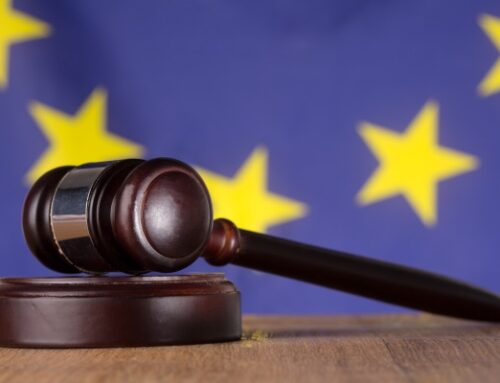TeamDrive boss advises German companies to take their company data from US digital groups and store it with domestic data service providers
Hamburg, September 23, 2020 – The US government’s requirements for the continued operation of the Chinese online platforms TikTok and WeChat in the USA would be similar to the EU’s stipulation that the US GAFAM groups – i.e. Google, Apple, Facebook, Amazon, Microsoft – in the European Union must either transfer most of their operations to European hands or cease operations in the EU. This is the comparison made by data security expert Detlef Schmuck, Managing Director of the Hamburg-based data service company TeamDrive. He says: “Now that the European Court of Justice ECJ has overturned the EU-US Privacy Shield, a ban on the GAFAM gang in the EU would be only logical. After all, the highest European court has come to the clear conclusion that data protection in the USA is a farce that in no way meets the high standards of personal data protection in Europe. A ban in the EU would therefore be a logical step.
Detlef Schmuck, however, is by no means calling for the shutdown, because “the injured parties would be less the US corporations, but rather the citizens and the economy in the EU”. He says: “Let us not delude ourselves: Our dependence on the US digital giants is so great that we and our economy could hardly live without Google, Apple, Facebook, Amazon and Microsoft, at least in the short term. Millions of people would literally lose their livelihood if Microsoft Office, for example, were no longer legally usable. Countless business working and project groups have organized themselves through WhatsApp, which is part of Facebook. Without Google, many European online stores would no longer have an influx of customers. We have entered a digital dependency on the USA, which could become dangerous within a few months in view of the smoldering trade wars.
The Hamburg-based data security expert therefore advises European companies to get their company data out of the USA and secure it with a German data service provider. He explains: “The increasing shift of data stocks to the cloud should not lead to overlooking global deglobalization. It does make a difference whether the company data at a German company is stored on a server in Germany or on a server outside the EU operated by a US company. In the first case, the law of the Federal Republic of Germany applies under all circumstances, in the second case there is a risk that U.S. law will be valued higher than German law.” The TeamDrive boss probably gives a concrete example, not entirely unselfishly: “You can still use Microsoft Office, but you can store the data with TeamDrive. This gives you the familiar functionality of the Office software and at the same time the guarantee that the data remains in Germany and is treated strictly in accordance with the regulations of the basic data protection ordinance. Now that the EU-US Privacy Shield has lost its legal validity, the use of US-American data services by a German company in any case poses a considerable risk for every board member and every managing director, up to and including liability for data protection violations”.





